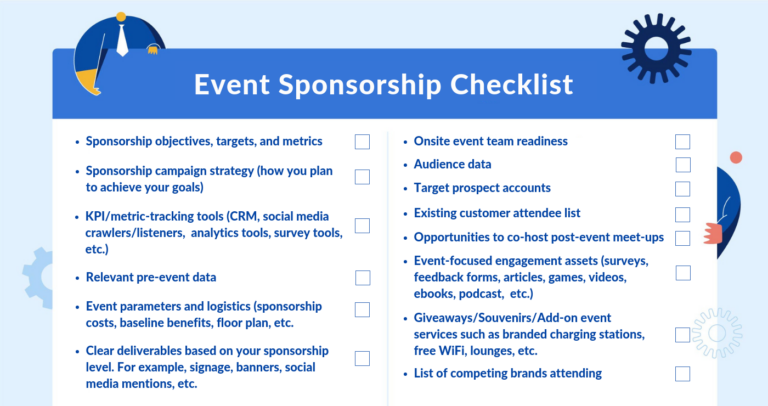Are you looking to take your event planning skills to the next level? Understanding how to measure event ROI is key to maximizing the success of your events. In today’s competitive landscape, it’s more important than ever to analyze the impact of your events on your business goals effectively. This blog will guide you through the essential steps of measuring event ROI like a pro. From setting clear objectives to tracking key performance indicators, we’ll explore actionable strategies to help you quantify the success of your events. Stay tuned to unlock the secrets of optimizing your events and achieving measurable ROI!
The Importance of Measuring Event ROI
Measuring Event ROI is crucial for businesses to assess the effectiveness of their event strategies and justify the resources allocated to these activities. Understanding how to measure event ROI provides valuable insights into the success of events and helps in optimizing future event planning and marketing decisions.
Enhanced Decision Making
Calculating event ROI allows businesses to make informed decisions based on data rather than assumptions. With accurate ROI measurements, organizations can evaluate which events generate the highest returns and prioritize resource allocation accordingly. This data-driven approach leads to improved event planning and execution strategies.
Evaluating Marketing Effectiveness
Measuring event ROI provides a clear picture of the impact of marketing efforts on event outcomes. By analyzing ROI metrics, businesses can determine the success of their promotional campaigns, identify areas for improvement, and refine marketing strategies for future events. Understanding the correlation between marketing activities and ROI is essential for maximizing event success.

Understanding the Basics: What is Event ROI?
Event ROI, or Return on Investment, is a crucial metric for evaluating the success and effectiveness of an event. It measures the financial gain or loss generated as a result of the event compared to the resources invested. To calculate event ROI, you need to consider both the costs incurred to organize and execute the event and the revenue or benefits obtained from it.
The Importance of Event ROI Measurement
Measuring event ROI is essential for businesses as it provides valuable insights into the impact of their event strategies. By understanding the return on their event investments, companies can make informed decisions for future events, optimize their budgets, and demonstrate the value of their events to stakeholders.
Tracking and analyzing event ROI allows organizations to identify areas of improvement, assess the success of their marketing efforts, and determine the effectiveness of their event objectives. It helps in aligning event goals with overall business objectives and ensures that resources are allocated efficiently.
Calculating Event ROI: Key Components
When calculating event ROI, it is essential to consider various key components such as pre-event expenses, on-site costs, post-event analysis, and revenue generated. By analyzing these factors in detail, businesses can gain a comprehensive understanding of the overall impact of their events and make data-driven decisions for future initiatives.
- Pre-Event Expenses: Includes costs related to planning, marketing, venue booking, and logistics.
- On-Site Costs: Encompasses expenses incurred during the actual event, such as catering, staffing, and technology.
- Post-Event Analysis: Involves evaluating attendee feedback, measuring engagement, and assessing the event’s success against objectives.
- Revenue Generated: Represents the income generated from ticket sales, sponsorships, partnerships, and post-event sales conversions.

Key Metrics for Measuring Event ROI
When it comes to measuring event ROI, there are several key metrics that event professionals should consider to gauge the success and effectiveness of their events. These metrics help in evaluating the impact of the event on the overall business goals and objectives.
1. Registration and Attendance Rates
Tracking the number of registrations and actual attendance at an event is crucial for determining its reach and popularity. Monitoring these figures can provide insights into the event’s attractiveness to attendees.
2. Engagement Levels
Measuring attendee engagement through interactions, such as session participation, poll responses, and social media activity, provides valuable insights into the event’s impact on the audience.
3. Lead Generation and Conversion Rates
Assessing the number of leads generated from the event and their conversion into customers helps in determining the event’s contribution to the sales pipeline and overall revenue generation.
4. Return on Investment (ROI)
Evaluating the financial outcomes of the event against the investment made is essential for measuring the event’s profitability. Calculating the ROI involves comparing the event’s revenue against its costs.
Tools and Techniques for Measuring Event ROI
Measuring the return on investment (ROI) of events is crucial for businesses to evaluate the effectiveness of their marketing strategies. By utilizing the right tools and techniques, event organizers can gain valuable insights into the success of their events and make informed decisions for future initiatives.
Event Tracking Software
Investing in event tracking software such as Google Analytics or HubSpot can provide detailed data on attendee engagement, ticket sales, website traffic, and conversion rates. These tools offer real-time analytics and custom reporting features to help measure the success of your event.
Social Media Monitoring
Monitoring social media platforms for mentions, shares, and interactions related to your event can give insights into audience sentiment and engagement levels. Tools like Hootsuite or Sprout Social can help track social media ROI by analyzing key metrics like reach, engagement, and conversions.
Utilizing social media analytics tools, businesses can measure the impact of their event campaigns, identify popular content, and assess the overall reach and effectiveness of their social media efforts.
Best Practices for Improving Event ROI
As an event organizer, maximizing return on investment (ROI) is crucial. Here are some actionable strategies to enhance your event ROI while providing value to your attendees:
1. Plan with Clear Objectives
Setting clear goals for your event is the foundation for success. Whether it’s lead generation, brand awareness, or revenue generation, define your objectives in measurable terms. This will help in evaluating the success of your event accurately.
2. Utilize Data Analytics
Leverage data analytics tools to track attendee behavior, engagement levels, and key performance indicators. Analyzing this data will provide insights into what worked well and areas that need improvement, enabling you to make data-driven decisions.
Utilize data analytics tools to track attendee behavior
Frequently Asked Questions
-
- Why is measuring event ROI important?
- Measuring event ROI helps in evaluating the effectiveness of an event, understanding the return on investment, and making data-driven decisions for future events.
-
- What are some key metrics to measure event ROI?
- Key metrics to measure event ROI include attendee satisfaction, lead generation, social media engagement, revenue generated, and cost per lead.
-
- How can I calculate the ROI of an event?
- To calculate event ROI, subtract the total event costs from the total revenue generated by the event, and then divide the result by the total event costs. Multiply by 100 to get the ROI percentage.
-
- What tools can help in measuring event ROI effectively?
- There are various tools available such as event management software, CRM systems, and survey tools that can help in tracking and measuring event ROI effectively.
-
- How can I improve event ROI for future events?
- To improve event ROI for future events, analyze the data from past events, set clear goals and objectives, engage with attendees, leverage technology, and continuously measure and optimize your event strategies.
Unlocking Event Success:
Measuring ROI Like a Pro
Final Thoughts:
Measuring event ROI is not just about numbers; it’s about understanding the impact of your efforts and optimizing for future success. By implementing the right strategies, setting clear objectives, and utilizing tools like data analytics, you can accurately measure the return on your event investment. Remember, ROI is more than just financial – it’s about the connections made, the brand exposure gained, and the lessons learned. So, take the time to evaluate, analyze, and tweak your approach for even greater results in your future events.



